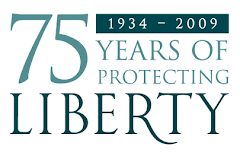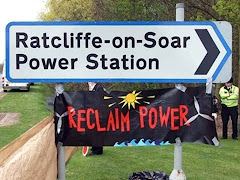"When an ex-serviceman broke the Armistice Silence at the Cenotaph in 1937, with his loud cry of protest against the hypocrisy of praying for peace while preparing for war, he had made clear what everyone was beginning to realise: the people who shared the Silence were not of one mind about what Remembrance meant." Tales of Two PoppiesVia the very same politicians and officials who laid wreaths at the Cenotaph today, our taxes are used to actively market and sell arms to Indonesia, to Saudi Arabia, to countless despotic regimes which quite openly use them to oppress whole populations, as well as to more "respectable" democracies which might only use them for things like invading Iraq or preventing Palestinians from picking olives.
War cannot happen without funding, and a staggering amount of our money goes to funding the manufacture and distribution of weapons of war. As well as your taxes, if you have a pension then the likelihood is that you personally have your own money invested in war-related industries. Any other investments you have are also likely to be used in this way too, unless you make a personal effort to ensure your money is ethically invested. Last year my housing co-op added a requirement for ethical investment to our financial policy, so that our current account, contingency funds and high-interest account savings are not busy putting guns in people's hands while we're not looking.
There is a campaign for a peace tax to enable taxpayers to conscientiously object to having their taxes spent on war, and in the meantime I know many people who live simply and cheaply, deliberately falling below the tax threshold altogether as the only legal way to avoid paying for bullets.
This form of financial conscientious objection is easy. Far more courageous are those who resist conscription or leave the armed forces, especially as doing so can often be extremely dangerous. Franz Jagerstatter, for example, was beheaded for refusing to fight in Hitler's army, and in many places today objection carries a straightforward prison or death sentence, conscientious or otherwise. Still some people have the courage to choose this rather than participate in war.
Provision still exists in UK law for members of the armed forces to gain the status of conscientious objectors, i.e. to declare that they are unable to carry out their duties because they have ethical objections to doing so. However, they are not told about this provision and it is made very difficult - if you know anyone currently serving then please make sure they know about At Ease. Even if they are never likely to use these services, they have a fundamental right to the information and will not be given it by their employer.
CCCO is a bigger American organisation along the same lines, which I first encountered resisting the presence of the armed forces in American schools. British schools are also targeted by military recruiters, as are colleges, universities and youth clubs. I tear up and throw away any recruitment materials I find, and often have interesting conversations with young people considering joining up. They are recruited before the kind of age at which people often begin to take any real interest in current affairs, and although they may have considered the possibility of dying in action, the idea of giving their lives for the government or for oil rather than for "the country" sometimes sheds a different light on matters.
War is an odd concept. Murder, torture, rape - all kinds of horrors, seen in the context of war, become submerged in the bigger identity of a wider struggle on which people have opinions based on other elements of that identity. Fundamentally, war is simply a series of human rights abuses, and each murder, each incidence of rape or torture is no less significant for being part of a bigger picture. Amnesty International supports conscientious objectors as well as many other prisoners of conscience. As small a thing as writing a letter can give brave people the support and help they deserve. They too make sacrifices for us, they too guard our freedom. So let ritual not become a substitute for action.
Lest we choose to forget.
COMMENTS
























10 comments:
Alice, I think you've got it slightly wrong here:
Remembrance is hypocritical if we do it while perpetuating the very conditions which cause the loss of life we mourn.
We remember - the warmongering finance and leaders create the wars to remember.
My point is that we're all complicit. Some of that finance is our taxes, our bank accounts, our pensions - and those "leaders" are supposed to be doing what they do on our behalf!
There's so much I could write in support of your postings that I'm not going to try to even begin! I was brought up by a Quaker who married someone for whom being in the RAF during WWII was the most exciting thing that happened in an otherwise peaceful life. So I'll merely say: "I agree!"
Excellent points Alice.
Having been taken to task in previous years (and, it surpried me by whom), I didn't write much on the subject this year, but, if I had, it would have been along similar lines.
Excellent article Alice. I couldn't agree more.
Peace
An interesting take but I cannot agree.
We do require an army, even if it is just for actual defence rather than projecting power. Deliberately falling below the threshold to avoid funding war is on the insane side of eccentricity, why not earn more and put the excess into campaigning? That would surely be better all round.
As for recruiting in schools, by all means talk through the options with pupils. However, tearing up any literature that you find that has an opposing view suggests that you wish to avoid rather than win an argument on this.
Finally I disagree that there is necessarily hypocrisy involved in "praying for peace while preparing for war", particularly in the example you gave. War is terrible, we should not seek it, but when it is inevitable you should seek to win. In 1937 our alternative to war was to submit to the Nazis, one minutes silence is not too much to ask to remember those who have served this country so well in that and other conflicts.
What do you think about left and progressives leaving messages at war memorials? It's something we've though about doing in Stoke SP, though of course we wouldn't be bigging up militarism.
Rather depends what message you intend to leave. You don't have to "big up militarism" but an appreciation rather than degradation of those who have sacrificed their lives would be the order of the day.
Just a thought on ethical investment. Many things are labelled as ethical because they don't invest in arms, tobacco, etc.
However, they do invest in banks and/or institutions that invest in those companies.
Dig around before handing over your wonga. Giving it to someone who gives it to the Burmese government is as bad as doing it yourself.
Post a Comment